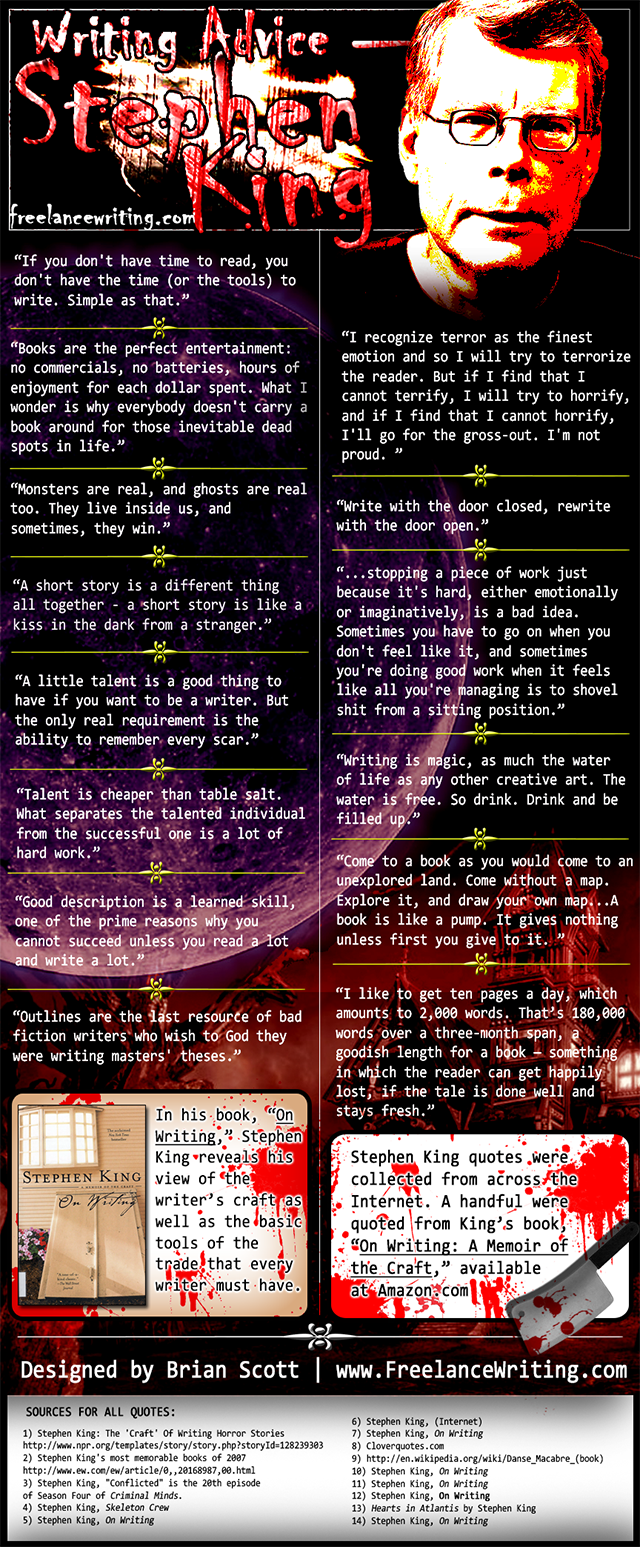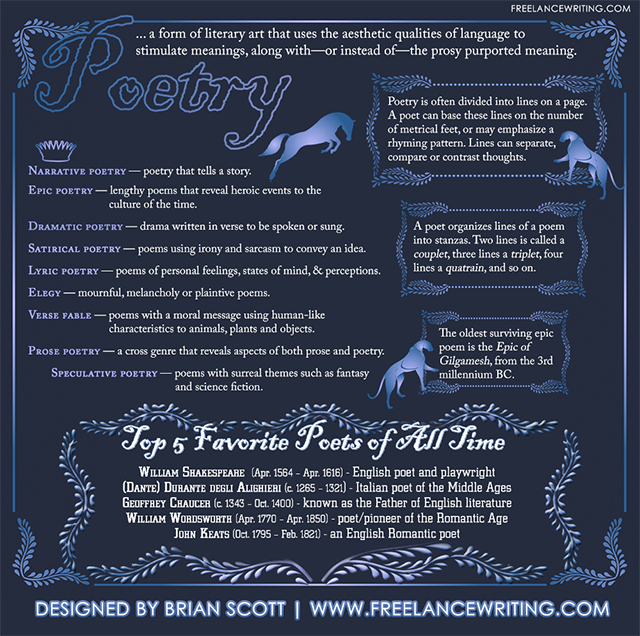As the author of dozens of novels, short stories, and other books,
Stephen King is one of the most prolific authors in the world. Both a memoir of Stephen King's life as an author and a guide for both amateur and experienced writers, "
On Writing: A Memoir of the Craft" remains one of his most popular works.
Some of the best writing tips ever published come from "On Writing." From tips about writing for your target audience to tips about finding a publisher, every writer who reads this marvelous book will come away with a new understanding of how to write successfully.
Put Time Aside to Read
It may seem like simple advice, but many writers do not put aside enough time each day to read. Whether the book is poorly written or a bestseller, every book has a lesson, even if the only lesson is what a writer should not do. Writers who never read other books, articles, and blogs are writers who soon become isolated and develop bad habits.
Never Censor Yourself
Many writers, especially in modern times, fall victim to self-censorship. When a writer omits something they fear may deeply offend their readers, they are no longer writing honestly. Some topics are likely to offend readers regardless if they are carefully sugar-coated or not.
Avoid Passive Voice
With passive voice, the noun phrase or noun that would be the object of the active sentence appears instead as the subject of the sentence. An example of this would be "the cat was chased by the dog" as opposed to "the dog chased the cat." Passive voice weakens the sentence. Avoiding passive voice ensures the strength of each sentence.
Plan Your White Space
Articles, blogs, and novels considered easy to read generally have an abundance of white space due to short, concise paragraphs. A complicated piece can easily be simplified by breaking up paragraphs and expanding white space. Readers who are easily intimidated by large amounts of texts relax when paragraphs appear short and mild.
Please Your Readers
It is very important to enjoy what you write. However, writers who wish to reap the benefits of successful writing should take care to write on topics their target audience would want to read about. Even obscure topics can please the masses if you approach them from the right angle.
Free Infographic: Stephen King- Writing Advice
I have designed the following graphic to showcase some of King's most insightful advice on writing. Feel free to distribute or use this infographic as you wish.
View more of my creative writing quotes at:
Creative Writing Quotes.
Related links:
The Writing Style of Stephen King
I welcome your comments, thoughts, or suggestions.
Sincerely,
Brian Scott






